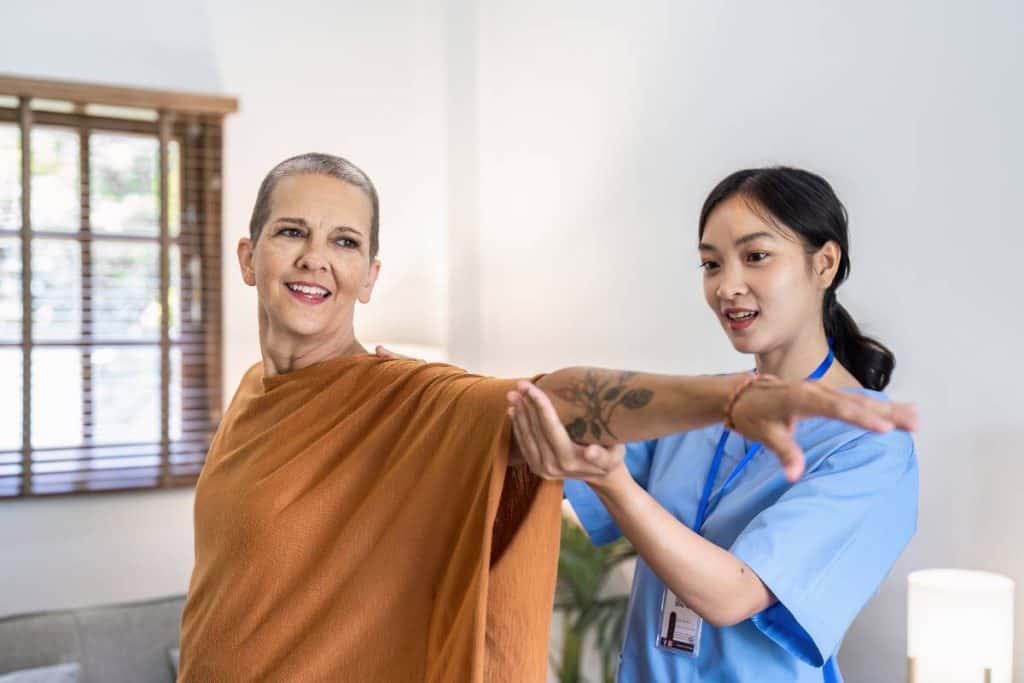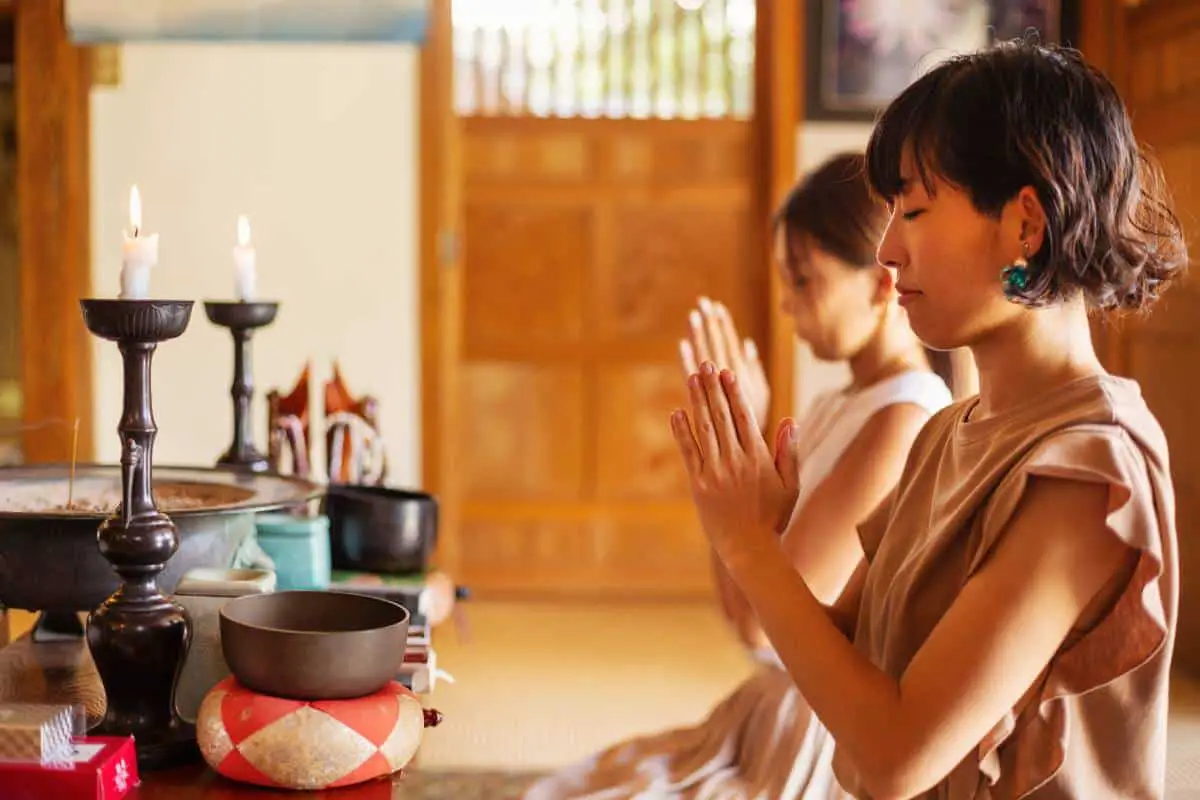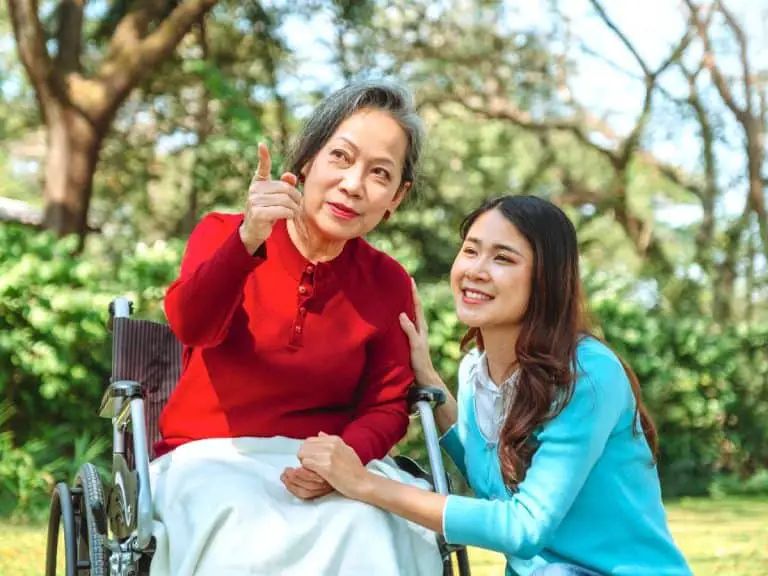What Are The Alternative Healing Practices In Thailand?
Thailand, a land of vibrant culture and ancient wisdom, has long been a haven for those seeking holistic healing and wellness. At BetterLivingAsia.com, we are passionate about helping you discover the secrets of traditional Thai healing and how it can transform your life. Founded by Tom Kitti, an expat with over 35 years of experience in the United States before moving to Thailand, our website is dedicated to providing insights and resources for those looking to achieve a happy and fulfilling life in Asia.
Key Takeaways
- Traditional Thai healing practices offer a holistic approach to wellness, focusing on the balance of body, mind, and spirit.
- Thai massage, herbal remedies, and energy healing techniques are integral components of Thai traditional medicine.
- Integrating Thai healing practices into modern healthcare and personal wellness routines can promote optimal health and vitality.
Historical and Cultural Context
The roots of Thai traditional medicine can be traced back centuries, drawing influence from ancient healing systems such as Ayurveda and Chinese medicine. However, it is the profound impact of Buddhism that has truly shaped the unique character of Thai healing practices.
At the heart of Thai traditional medicine lies the concept of balance and harmony between the body, mind, and spirit. This holistic approach is deeply intertwined with Buddhist teachings, which emphasize the importance of mindfulness, compassion, and the interconnectedness of all beings.
One of the most significant landmarks in the history of Thai healing is Wat Pho, a temple located in Bangkok. Wat Pho is considered the birthplace of Thai massage and houses an extensive collection of ancient medical texts and illustrations. These invaluable resources have been carefully preserved and passed down through generations, thanks to the patronage of Thai royalty who recognized the importance of safeguarding this precious knowledge.
Today, Thai traditional medicine continues to evolve and adapt, while remaining true to its core principles. The Thai government has taken steps to support and regulate the practice of traditional healing, ensuring that its benefits can be safely and effectively shared with the world.
Core Principles of Thai Traditional Healing
At the foundation of Thai traditional medicine lies a set of core principles that guide its practice and philosophy. These principles are rooted in the belief that true healing occurs when the body, mind, and spirit are in harmony.
One of the key concepts in Thai healing is the balance of the four elements: earth, wind, fire, and water. Each element is associated with specific bodily functions and characteristics, and an imbalance of these elements is believed to contribute to illness and disease.
Another crucial aspect of Thai traditional medicine is the understanding of energy lines, or sen, that run through the body. These energy lines are thought to be pathways for the flow of life force, and blockages or disruptions in this flow can lead to physical and emotional disorders. Thai massage and acupuncture techniques are designed to stimulate and balance these energy lines, promoting healing and well-being.
The five aggregates, or khandas, also play a significant role in Thai healing philosophy. These aggregates – form, sensation, perception, mental formations, and consciousness – are believed to be the building blocks of the self. By understanding and working with these aggregates, practitioners can help individuals achieve greater self-awareness and emotional balance.
Lastly, Thai traditional medicine places great emphasis on the cultivation of mindfulness, meditation, and compassion. These practices are considered essential for promoting mental and emotional well-being, as well as fostering a deeper connection with oneself and others.
By embracing these core principles, Thai healing practices offer a comprehensive approach to wellness that addresses the needs of the whole person – body, mind, and spirit.
Traditional Thai Healing Practices
Thai traditional medicine encompasses a wide range of healing practices, each designed to promote balance, relaxation, and overall well-being. Let’s explore some of the most prominent and effective techniques:
Nuad Thai (Thai Massage)
Nuad Thai, or Thai massage, is perhaps the most well-known and sought-after Thai healing practice. This unique form of massage combines acupressure, stretching, and energy work to alleviate tension, improve circulation, and promote relaxation. Unlike Western massage styles, Thai massage is performed on a mat on the floor, with the recipient fully clothed in loose, comfortable attire.
The benefits of Thai massage are numerous, including:
- Reducing muscle tension and stiffness
- Improving flexibility and range of motion
- Boosting circulation and lymphatic flow
- Relieving stress and promoting mental relaxation
Acupuncture and Cupping
Acupuncture is another integral component of Thai traditional medicine. This practice involves the insertion of fine needles into specific points on the body to stimulate healing and restore balance. Thai acupuncture often incorporates elements of Thai massage, such as stretching and energy work, to enhance its therapeutic effects.
Cupping, a technique that uses glass or plastic cups to create suction on the skin, is often used in conjunction with acupuncture. Cupping helps to increase blood flow, reduce pain and inflammation, and promote detoxification.
Herbal Remedies and Natural Supplements
Thailand boasts an abundant variety of medicinal plants and herbs, which have been used for centuries to treat a wide range of health conditions. Thai herbal remedies are often prepared as teas, tinctures, or topical applications, such as compresses and steam treatments.
Some of the most commonly used herbs in Thai traditional medicine include:
- Ginger: Aids digestion, reduces inflammation, and boosts immunity
- Turmeric: Powerful anti-inflammatory and antioxidant properties
- Lemongrass: Relieves stress, improves circulation, and supports detoxification
- Holy Basil: Enhances mental clarity, reduces stress, and promotes overall well-being
Food as Medicine
In Thai culture, food is not only a source of nourishment but also a means of promoting health and healing. The healing cuisine of Thailand incorporates a wide array of fresh vegetables, aromatic herbs, and medicinal spices to create delicious and nutritious dishes.
Some key ingredients in Thai healing cuisine include:
- Galangal: A root similar to ginger, known for its anti-inflammatory and digestive properties
- Kaffir Lime: Boosts immunity, promotes skin health, and aids digestion
- Coconut: Hydrates the body, supports weight management, and enhances brain function
Energy Healing Practices
Thai traditional medicine also recognizes the importance of energy healing in promoting overall well-being. Reiki, a Japanese technique that involves the channeling of universal life force energy, has been embraced by many Thai healers as a complementary practice to traditional Thai massage and acupuncture.
Additionally, chakra balancing and aura cleansing are often incorporated into Thai healing sessions to promote emotional and spiritual well-being. By working with the body’s subtle energy systems, practitioners aim to remove blockages, restore balance, and encourage the free flow of vital energy throughout the body.

Thai Traditional Medicine in the Modern World
As the world becomes increasingly interconnected, Thai traditional medicine has begun to adapt and evolve to meet the needs of a global audience. While remaining true to its ancient roots, Thai healing practices are now being integrated with modern complementary and alternative medicine approaches.
One notable example is the use of Thai massage in physiotherapy and rehabilitation. Many physical therapists and healthcare professionals now recognize the value of incorporating Thai massage techniques into treatment plans for conditions such as chronic pain, musculoskeletal disorders, and sports injuries. The combination of targeted acupressure, gentle stretching, and mindful breathing can help to reduce pain, improve mobility, and accelerate the healing process.
Similarly, acupuncture has gained widespread acceptance as a complementary treatment for a variety of chronic conditions, such as migraines, arthritis, and digestive disorders. By stimulating specific points on the body, acupuncture can help to regulate the flow of energy, alleviate symptoms, and promote overall health and well-being.
In addition to its therapeutic applications, Thai traditional medicine has also become increasingly popular in the global spa and wellness industry.
Many high-end resorts and wellness centers now offer authentic Thai massage, herbal treatments, and energy healing sessions as part of their services. This has not only helped to spread awareness of Thai healing practices but has also created new opportunities for skilled practitioners to share their knowledge and expertise with a wider audience.
As the focus on preventive care and holistic wellness continues to grow, Thai traditional medicine is well-positioned to play a significant role in the future of healthcare. By emphasizing the importance of balance, self-care, and the interconnectedness of body, mind, and spirit, Thai healing practices offer a valuable complement to modern medicine and a path to optimal health and well-being.
Scientific Research and Evidence-Based Practice
In recent years, there has been a resurgence of interest in Thai traditional medicine, not only among the general public but also within the scientific community. Researchers and healthcare professionals are increasingly recognizing the potential of Thai healing practices to complement and enhance modern medical treatments.
This growing interest has led to several collaborations between traditional healers and modern healthcare providers, as well as an increase in scientific studies aimed at validating the efficacy and safety of Thai healing practices. For example, numerous studies have investigated the benefits of Thai massage for conditions such as chronic low back pain, knee osteoarthritis, and fibromyalgia, with many reporting significant improvements in pain, mobility, and quality of life.
Similarly, research on Thai herbal remedies has shown promising results for a variety of health conditions. For instance, studies have demonstrated the anti-inflammatory and antioxidant properties of herbs such as ginger and turmeric, while others have explored the potential of Thai medicinal plants in the treatment of diabetes, hypertension, and even certain types of cancer.
As the body of scientific evidence supporting Thai traditional medicine continues to grow, there is a growing push for standardization, quality control, and regulatory frameworks to ensure the safety and effectiveness of these practices.
The Thai government, in collaboration with leading research institutions and healthcare organizations, is actively working to establish guidelines and standards for the practice of Thai traditional medicine, both within Thailand and internationally.
By embracing evidence-based practice and rigorous scientific research, Thai traditional medicine is poised to make a significant contribution to the field of integrative healthcare, offering patients and practitioners alike a holistic, patient-centered approach to wellness and healing.
Learning and Experiencing Thai Traditional Healing
For those inspired to delve deeper into the world of Thai traditional healing, there are numerous opportunities to learn and experience these practices firsthand. Whether you are a healthcare professional looking to expand your skill set, or simply someone seeking to incorporate Thai healing techniques into your personal wellness routine, there are many paths to explore.
One of the most immersive ways to learn about Thai traditional medicine is to study with experienced practitioners in Thailand. Many schools and training centers throughout the country offer courses in Thai massage, herbal medicine, and other healing arts.
These programs often combine classroom instruction with hands-on practice, allowing students to gain a deep understanding of the techniques and philosophies behind Thai healing practices.
For those unable to travel to Thailand, there are also many opportunities to learn Thai healing arts closer to home. Workshops, seminars, and online courses are increasingly available, taught by experienced practitioners who have trained extensively in Thailand. These programs can provide a solid foundation in Thai healing techniques, which can then be further developed through ongoing practice and study.
Of course, one of the most enjoyable ways to experience Thai traditional medicine is through wellness tourism. Thailand has long been a popular destination for those seeking relaxation, rejuvenation, and healing, with a wide range of resorts, spas, and wellness centers offering authentic Thai treatments and therapies. From luxurious beachfront retreats to serene mountain lodges, there are countless opportunities to immerse oneself in the healing traditions of Thailand while enjoying the country’s stunning natural beauty and warm hospitality.
Ultimately, whether you choose to study Thai traditional medicine in-depth or simply incorporate elements of Thai healing into your daily life, the benefits are clear. By embracing these ancient practices and integrating them into a holistic approach to wellness, you can unlock new levels of physical, mental, and spiritual well-being, and discover a path to greater vitality, balance, and joy.

Preserving and Promoting Thai Traditional Medicine
As Thai traditional medicine gains increasing recognition and acceptance around the world, it is more important than ever to ensure that this precious cultural heritage is preserved and promoted for future generations. This involves not only documenting and safeguarding the ancient knowledge and techniques of Thai healing but also actively working to integrate these practices into modern healthcare systems.
The Thai government, in collaboration with traditional healers, academics, and healthcare organizations, has taken significant steps to support and regulate the practice of Thai traditional medicine. This includes the establishment of national standards for the training and certification of practitioners, as well as the development of research programs to further investigate the safety and efficacy of Thai healing practices.
At the same time, efforts are being made to promote Thai traditional medicine on a global scale, through initiatives such as international conferences, cultural exchanges, and collaborative research projects. By sharing the wisdom and benefits of Thai healing with the world, we can help to ensure that this remarkable tradition continues to thrive and evolve while making a meaningful contribution to the advancement of integrative healthcare.
Ultimately, the preservation and promotion of Thai traditional medicine is not only a matter of cultural heritage but also a vital step towards building a more holistic, compassionate, and sustainable approach to health and wellness for all.
FAQs
What is the difference between Thai traditional medicine and Western medicine?
Thai traditional medicine takes a holistic approach, focusing on the balance and harmony of body, mind, and spirit, while Western medicine tends to focus on treating specific symptoms or diseases.
How effective is Thai massage in relieving chronic pain and stress?
Studies have shown that Thai massage can be highly effective in reducing chronic pain, improving flexibility, and alleviating stress and anxiety.
Are Thai herbal remedies safe for long-term use?
When used properly and under the guidance of a qualified practitioner, Thai herbal remedies are generally safe for long-term use. However, it is always best to consult with a healthcare professional before starting any new treatment regimen.
Can Thai healing practices be combined with modern medical treatments?
Yes, Thai traditional medicine can often be safely and effectively combined with modern medical treatments, as part of an integrative approach to healthcare. However, it is important to inform all of your healthcare providers about any complementary therapies you are using.
How can I find a reputable traditional Thai healer or massage therapist?
Look for practitioners who have received formal training and certification in Thai traditional medicine, and who are members of professional organizations such as the Thai Healing Alliance International (THAI) or the International Thai Therapists Association (ITTA). You can also ask for referrals from trusted sources, such as healthcare providers or wellness centers.
How is traditional Thai medicine being utilized in the treatment of cancer patients?
Traditional Thai medicine offers supportive care for cancer patients, helping to alleviate side effects of treatments, improve quality of life, and boost the body’s natural healing abilities. It is often used in conjunction with conventional cancer treatments.
What role does Thai acupressure play in traditional Thai medicine?
Thai acupressure, also known as “sen line therapy,” is a key component of traditional Thai medicine that focuses on applying pressure to specific points on the body to promote energy flow, relieve pain, and enhance overall well-being.
Conclusion
Thai traditional medicine offers a rich and fascinating path to holistic wellness, grounded in ancient wisdom and adapted for the modern world. By embracing the power of Thai healing practices, we can unlock new levels of physical, mental, and spiritual well-being, and discover a more balanced, harmonious way of life.
At BetterLivingAsia.com, we are committed to helping you navigate this transformative journey, with expert guidance, resources, and support every step of the way. If you’re ready to embark on your own path to holistic wellness, we invite you to subscribe to our newsletter, or contact us today, and take the first step towards a happier, healthier, and more fulfilling life.






